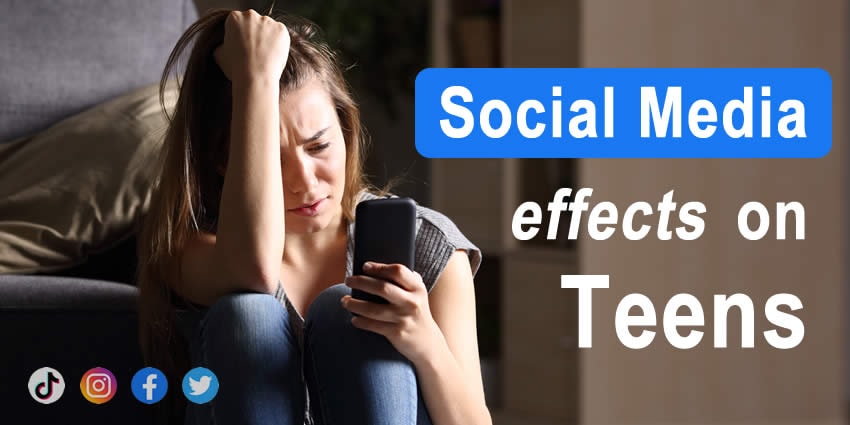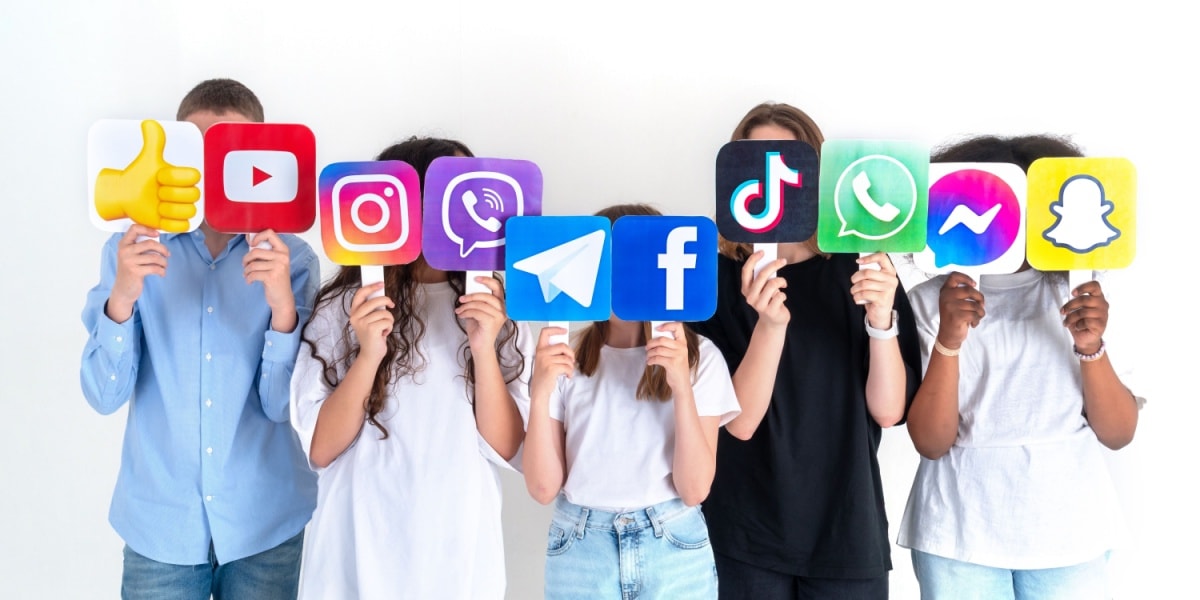How does social media affect teenagers?
In the digital age, social media has become an integral part of teenagers’ lives. But are these platforms helping them connect better, or are they unintentionally creating pressure and negatively affecting their mental health?
Social media provides a space for young people to connect, express themselves and share everyday moments. However, behind the likes and statuses lies the silent pressure of comparison, psychological stress and sometimes excessive expectations.

Recent surveys in the US show that social media is harmful to teenagers, significantly affecting their mood, sleep, and ability to concentrate on a daily basis. In addition, the influence of social media on the mental health of teenagers is increasingly evident, both positively and negatively.
Despite changes in awareness, time spent on social media remains high
In the US, most teens use social media every day, from getting news updates, chatting with friends to killing time by mindlessly scrolling. But what’s remarkable is that more and more teens are realizing they’re spending too much time on these platforms.
According to a 2024 survey from the Pew Research Center (USA), 45% of teenagers admitted to using social media more than they would like, a significant increase from 27% in 2023.
Social media is now almost an integral part of everyday life, especially during breaks between classes or at night. However, while usage remains high, some teenagers have begun to change their habits.

Photo: Internet.
Specifically, 44% said they have reduced their time on social media, and a similar percentage are trying to limit their smartphone use. Compared to 2023, the rates were 39% and 36% respectively, which is a positive sign.
Notably, girls were more likely to adjust their behavior, with 48% saying they were withdrawing from social media, compared to 40% of boys.
This change partly reflects the growing awareness among young people of the negative impacts of social media such as disturbed mood, reduced ability to concentrate and interrupted sleep.
At the age of forming personal identity, many children begin to think seriously about “social media addiction”, a state that is not easy to escape in the digital age.
How does social media affect the mental health of teenagers?
While most teenagers admit that social media has a negative impact on their mental health, interestingly, many say that the impact is on others, not themselves.
According to the latest figures, 48% of American teens believe that social media is harmful mainly to their peers, a significant increase from 32% in 2022. This figure shows that awareness of the psychological risks posed by social media is growing rapidly.
However, when asked about the direct impact on themselves, only 14% of young people described their experiences on social media as “mostly negative”. The majority said that these platforms did not bring any obvious benefits, but also did not cause serious harm to their lives.
The discrepancy between personal perception and social observation suggests that many teens may be underestimating the subtle effects social media has on them, from their mood and self-esteem to how they perceive the world around them.
Why can social networks be harmful to teenagers?
Even if teenagers themselves don't feel the effects of social media, the numbers show signs of stress, especially among some more vulnerable groups.
About 31% of American teens said they felt pressured to post content to get likes or attention. This feeling was especially strong among girls (36%) compared to boys (26%).

Sleep is also seriously affected, with 45% of teenagers admitting that using social media at night prevents them from sleeping well.
These figures paint a subtle but worrying picture that the impact of social media isn’t always in the form of obvious shocks or major crises. Sometimes it’s the insidious effects of constant comparison, anxiety about being left behind, or chronic sleep deprivation that slowly erode young people’s mental health.
So how does social media affect teens? The answer depends on how they use it and how they feel about it. For some, it’s a place to connect with friends, express themselves, and find support during difficult times.
But for others, social media is a source of stress and sleeplessness. While social media use is a daily part of life, more and more teenagers are starting to take a more serious look at its impact and are proactively adjusting it to protect their mental health./.




.jpg)

